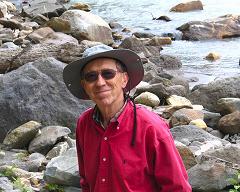Page 4 • (890 results in 0.044 seconds)
-

After a rare heart condition cut her soccer career short, Shelby Daly ’13 found her calling as an athletic trainer.
next day, doctors diagnosed her with Arrhythmogenic Right Ventricular Dysplasia (ARVD), a rare type of cardiomyopathy that occurs if the muscle tissue in the heart’s right ventricle dies and is replaced with scar tissue, according to the American Heart Association. Doctors implanted a cardioverter defibrillator (ICD) in her chest the same day. ARVD is believed to be a genetically inherited disease, and is one of the most common causes of sudden cardiac arrest among young athletes. Daly said her
-
Major in Chemistry 51 semester hours: 47 semester hours in Foundation courses, plus 4 semester hours in CHEM 342 Foundation Courses 47 semester hours Chemistry Courses 29 semester hours CHEM 115,
compounds, and that supports their educational goals, whether toward graduate study, the medical and health professions, biotechnology, forensic science, education, business, or as a complement to other studies. For good reason, chemistry is often called “the central science.” The Department of Chemistry’s courses, curriculum, faculty, and facilities are approved by the American Chemical Society (ACS) and the department offers ACS certified degrees. Students get hands-on experience using sophisticated
-

Professor of Earth Science and Environmental Studies | Earth Science | mckennra@plu.edu | 253-535-8726
Rose McKenney Professor of Earth Science and Environmental Studies she/her/hers Phone: 253-535-8726 Email: mckennra@plu.edu Office Location: Rieke Science Center - 143 Status:On Sabbatical Professional Education Ph.D., Geosciences, The Pennsylvania State University, 1997 M.S., Geosciences, The Pennsylvania State University, 1992 B.S., Geology, Oregon State University, 1985 Areas of Emphasis or Expertise Geomorphology Environmental Studies Science Education Curriculum Development Books Land Use
Area of Emphasis/Expertise -
Global society is based on geology. Our energy resources, construction and manufacturing materials, food and agricultural products, and building sites all depend on the geologic environment.
Why Study Earth Science?Global society is based on geology. Our energy resources, construction and manufacturing materials, food and agricultural products, and building sites all depend on the geologic environment. Dramatic geological processes such as earthquakes, volcanic eruptions or floods impact many areas of the world. Less dramatic but ongoing processes such as rivers, wind, soil erosion and glacial movement sculpt the landscape and change how humans use the Earth’s surface. Geology
-
Earth Science faculty and staff.
Peter Davis Associate Professor of Earth Science Full Profile 253-535-5770 davispb@plu.edu
-
Earth Science faculty and staff.
Steven Benham Professor Emeritus Full Profile benhamsr@plu.edu
-
Earth Science faculty and staff.
Peter Davis Associate Professor of Earth Science Full Profile 253-535-5770 davispb@plu.edu
-

Have you ever wondered how the ocean’s tiniest inhabitants play a significant role in shaping our world? Marine microorganisms, minuscule life forms, wield a vital influence over our planet’s climate. They manage crucial components like carbon and oxygen within the vast oceans and the atmosphere.…
microorganisms, minuscule life forms, wield a vital influence over our planet’s climate. They manage crucial components like carbon and oxygen within the vast oceans and the atmosphere.Over the summer, Professor Angie Boysen and her dedicated team, Lydia Flaspohler ’25, a biology major, and Ryan Fisher ’24, a biology major and environmental studies minor, embarked on a mission to unravel the secrets of these microorganisms. Professor Boysen, Flaspohler and Fisher aimed to understand the compounds these
-
Established in 2022 through a gift from David and Lorilie Steen, the Steen Family Symposium brings informed speakers who challenge current thinking and propose healthy change to the PLU campus for
anniversary of the Medicine Creek Treaty, with a panel discussion focused on collaboration, trust, and stewardship of resources after the Boldt Decision. The 2024 Steen Family Symposium will offer a continued conversation for those who attend the Schnackenberg Memorial Lecture, and a launching point for PLU’s Earth & Diversity Week. The poster and digital art for the 2024 Steen Family Symposium was created by Caden Ankrom (PLU ’26). Caden shared, “When conceptualizing the artwork for this event, my
-

Professor Emeritus | Earth Science | Brian E.
Department of Earth Sciences was realized in 1970 and the first major graduated that year; he is here with us tonight – Roger Hansen. Since 1970, more than 230 majors and minors have graduated from the department and nearly every student that has passed through the department has taken one or more classes from Brian. Over the years, Brian has taught a broad range of science courses to both geology majors and non-majors. In the early years, he taught all the courses! For the few courses that were outside
Do you have any feedback for us? If so, feel free to use our Feedback Form.


